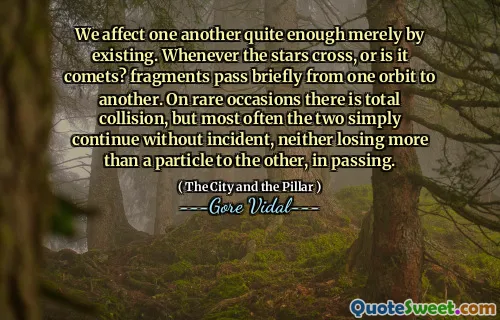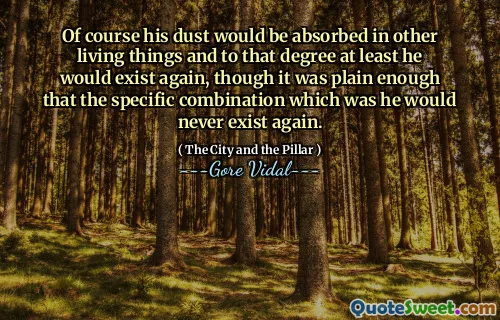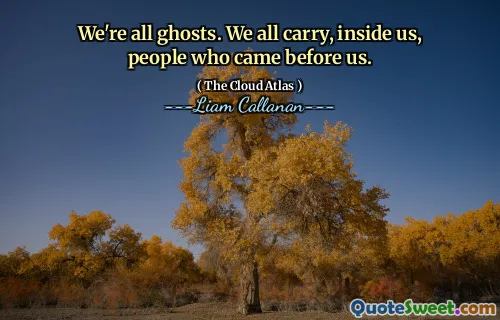
Of course his dust would be absorbed in other living things and to that degree at least he would exist again, though it was plain enough that the specific combination which was he would never exist again.
In Gore Vidal's "The City and the Pillar," the idea of existence and the cycle of life is reflected upon through the notion of dust. The concept suggests that while a person's physical being may dissipate and transform into new forms, the unique essence of an individual is lost forever. This speaks to the inevitability of mortality and the natural process of decomposition and rebirth in the world.
The passage emphasizes the transient nature of identity, indicating that while elements of a person may contribute to new life, the specific qualities and experiences that define them are irretrievable. It creates a poignant reflection on the continuity of life juxtaposed against the permanence of individual loss, inviting readers to consider their own existence and legacy.











